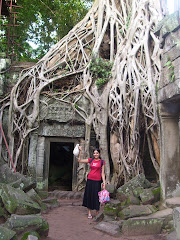Title
of book: The Translator
Author:
Leila Aboulela
Date
of Review: June 23, 2019
I got this book from Stephanie Schechner (Professor
of French, Widener U) in April 2019 when I visited Widener and she was giving
away her books. I got quite a few, including poetry by Keats, translations of
Dhammapada and Upanishads, and more for Neeru..
I picked this book as the author is from Sudan and I
am usually interested in reading work by authors from countries I have never been
exposed to. It gives me insight into their culture and thoughts and it is
fascinating. I also like Muslim writers, including Naguib Mahfouz. Though
Mahfouz’s work was translated from Arabic into English and something must be
lost in translation. This book is written in English by Aboulela and it is her
first novel. J.M. Coetzee wrote about this book, “A story of love and faith all
the more moving for the restraint with which it is written.” There is restraint
in the writing.
This book is about Sammar (the eponymous translator)
who works in a university in Aberdeen as a translator of Arabic text into
English for a professor, Rae Isles. Rae is an expert in Middle-East studies and
has done extensive research on Islam. She is a Sudanese widow, whose husband (a
cousin and childhood sweetheart) dies in an accident in Aberdeen where they
came for his medical residency. She has a son Amir who she leaves with his
grandmother and mother-in-law in Khartoum, while she returns to Aberdeen to
escape the wrath of her mother-in-law who is angered by Sammar’s thoughts of
remarrying a much older man and becoming his third wife. Sammar and Rae slowly
fall in love and it is expressed beautifully and with restraint, mainly from
Sammar’s point of view. But the major hurdle is her inability to go beyond the
fact that he is not a Muslim. She is an observant and devout follower, who
practices her faith with such diligence at all times.
Aboulela describes the accentuation of Sammar’s
depression in the cold, grey climate of Aberdeen as she yearns for the intense
sun and heat of Khartoum. Sammar is somewhat a prototype of a Muslim woman. She
is demure and shy and is usually measuring her words and environment. Not
expressing her anger even though she has intense emotions about certain things.
She craves the state of marriage and envies people who are married, especially
after her widowhood even as she does not miss her husband per se. She is ready
to marry a much older man for the safety of a marriage, even though people are
shocked around them. Not a feminist heroine for sure. So however unfair it may
sound, I found hard to sympathize with her. And the major issue for me is her
insistence on Rae’s conversion to Islam for them to marry. She is not seeking
to work or have an identity of her own. So she is not at all inspiring.
Characters do not have to inspire always but certain mindsets put me off.
I found the description of Khartoum interesting. It
has the issues of developing countries, with electricity cuts, scarcity of
employment, and increased urbanization and loss of spaces. It is mentioned at
least twice how they would all sleep on the rooftops or in the gardens during
hot summer nights but with building of apartments, it is no longer possible.
Aboulela’s writing style flows smoothly from streets
of Aberdeen to Cairo to Khartoum, and within the recesses of Sammar’s memories.
One surprising thing is the indifference of Sammar for her son, Amir. She even
yells at him right after her husband’s death at seeing him play, “why didn’t
you die instead of Tarig [her husband]…you are easily replaceable”. She repairs
her relationship with him later. The family dynamics in Khartoum are described
well. People say the meanest things to each other sometimes in frustration, and
then in at least one case, their relationship improves and mellows right after
these incidents, contrary to expectation.
There were several descriptions about Islam (and
Hadiths) with emphasis on The Truth and how others (non-Muslims) need to
realize it. There is a moving paragraph (pg 63) where a character who loses his
infant son is comforted by his friends. “The children who die will intercede
for their parents. They will stand at the gates of Paradise and refuse to go in
without their mothers and father, cry out wanting them, and Allah will grant
them their wish.”
Recommended?
Yes. It is the first time I read a writer from Sudan and it gave me a peek into
their life. There are a lot of similarities with the other eastern countries,
and something I have read earlier as well.












No comments:
Post a Comment